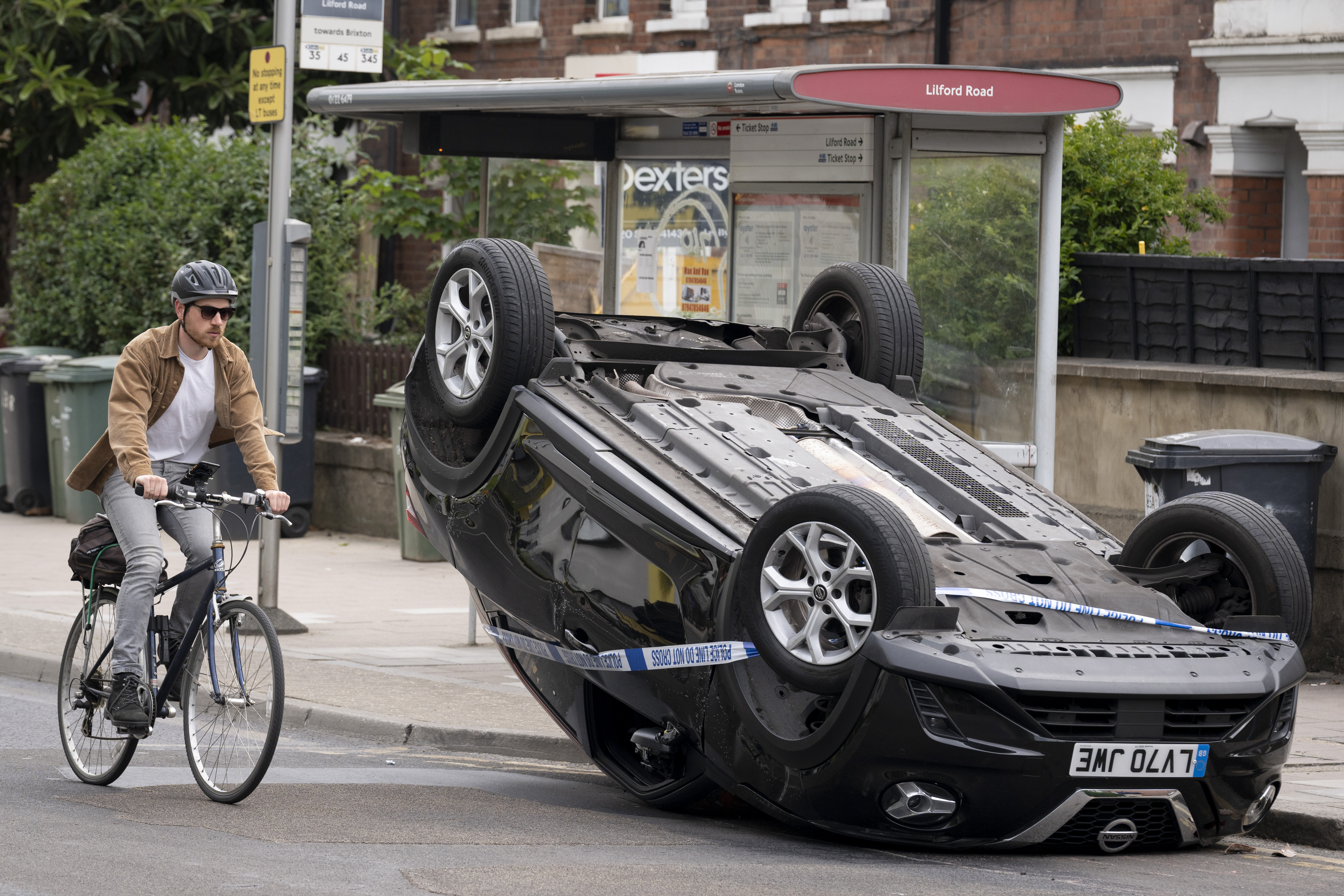Opinion: The government has its priorities wrong on the dangers on our roads
Dangerous driving, not dangerous cycling, is the more pressing issue


On Monday, the All-Party Parliamentary Group for Cycling and Walking (APPGCW) published Road Justice at an event at the Houses of Parliament, a report which seeks to redress the balance between the nature of road violence and its consequences.
On Tuesday, at justice questions in the House of Commons, Edward Argar, a justice minister, said that the government was considering a "broader call for evidence on motoring offences". Hardly a ringing endorsement of the report, especially as a "full review" of driving offences has been promised for almost a decade, without any sign of it actually happening.
Road Justice reads: "At the time of writing, this call has not been launched and there is no further news on the review. Many of our recommendations would naturally fall under such a review, were it to take place. We remain hopeful that it will."
At the same justice questions, Argar also spoke about new legislation for "dangerous cycling", an idea which refuses to go away.
"The safety of our roads is a key objective for the government. Protecting all road users is a priority," he said. "Like all road users, cyclists have a duty to behave in a safe and responsible manner. While laws are in place for cyclists, the current laws are old and it can be difficult to successfully prosecute offences.
"That's why DfT colleagues are considering bringing forward legislation to introduce new offences concerning dangerous cycling to tackle those rare instances where victims have been killed or seriously injured by irresponsible cycling behaviour."
While both of these "considering" answers could just be taken as politely kicking the can down the road, the Conservative government has been keen to present itself as "pro-motorist" and not on the side of cyclists in what it seems to view as another front of the culture war. At the moment, the government seems more likely to talk up new legislation on dangerous cycling than even think of tackling dangerous driving. Its biggest intervention has been to increase the penalty for causing death by dangerous driving to life imprisonment last year.
The latest race content, interviews, features, reviews and expert buying guides, direct to your inbox!
In fanning the culture war, the government is responding to a right wing press keen to present cycling as some kind of anarchic, revolutionary activity, as opposed to a perfectly reasonable way to get around, one that needs to be only encouraged as the world sinks further into climate crisis.
The likes of "'You're totally unaccountable' | Driver and cyclist debate over whether bikers are too MILITANT" on GB News or the howls of outrage over the idea that drivers should be fined for breaking speed limits, or the constant screeds against LTNs, pushes the government to pose as "pro-motorist" and "anti-cyclist".
Dangerous driving is not the same as dangerous cycling. Road accidents involving cars, on an average day, kill five people and seriously injures more than 80, while dangerous cycling is a much smaller issue. Cyclists are vulnerable road users by and large, threatened by motorists, rather than the ones causing the issue.
Just taking a cursory look at local news reveals the devastating impact of road violence on cyclists:
Teenage cyclist seriously hurt in St Austell crash
Cyclist fighting for life after Hackney collision as driver arrested
Cyclist injured in crash between Snape and Tunstall, Suffolk
Cyclist injured in collision at roundabout on A5 near Shrewsbury
Cyclist seriously injured after crash involving car near Oxford city centre
Teenage cyclist dies after collision with bus in Grimsby
Winwick Road closed by police as teen seriously injured in crash
Cyclist dies after smash with car on East Staffordshire road
That is not the downplay the impact of dangerous cycling; a cyclist colliding with a pedestrian might have just as much a tragic effect as a car colliding with a cyclist, but just to say that the priorities are wrong. The risk profiles are also not the same - there are many more cars out there causing issues than cyclists, and when a car is driven badly, it can have a bigger impact sooner than a cyclist.
In talking about dangerous cycling in the same breath as dangerous driving, or even elevating it over the other, the government is indulging in whataboutery, rather than tackling a a big problem. It seems odd that road violence is normalised, accepted, rather than constantly protested against.
As the Road Justice report says: "In addition to being a very useful tool, a car has the potential to be a lethal weapon. And those who drive dangerously (as defined by the offence) are effectively wielding a lethal weapon. The maximum sentence for having an offensive weapon (or bladed article) in a public place without good reason or lawful excuse is currently four years."
One of the biggest hurdles for wannabe cyclists to overcome is the dangers of cycling on the road, and the dragging of feet over tackling road violence very much hinders any progress in this sector. Change is needed to create a UK with less road violence.
Rather than fanning the flames of the ongoing cyclist vs driver culture war, the government should aim to stop dangerous driving, and actually stop the deaths.

Adam is Cycling Weekly’s news editor – his greatest love is road racing but as long as he is cycling, he's happy. Before joining CW in 2021 he spent two years writing for Procycling. He's usually out and about on the roads of Bristol and its surrounds.
Before cycling took over his professional life, he covered ecclesiastical matters at the world’s largest Anglican newspaper and politics at Business Insider. Don't ask how that is related to riding bikes.